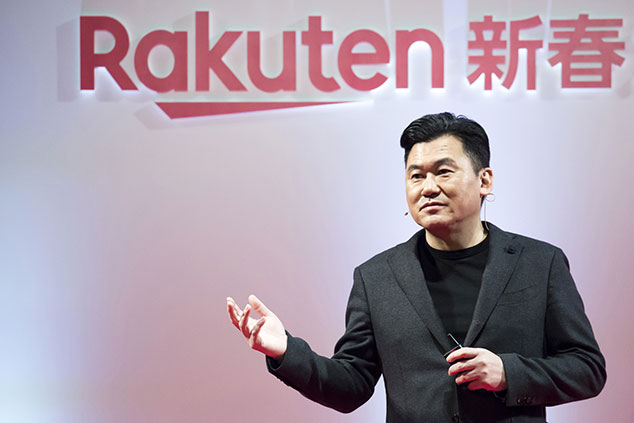
This year is shaping up to be a big one for Hiroshi “Mickey” Mikitani, the flamboyant billionaire behind Japan’s largest e-commerce outfit, Rakuten. Long renowned as a talented trend-spotter, several of his long-term bets are coming to fruition at the same time. So far, so lucrative. As Reuters notes, Rakuten’s shares are up 38% this year “on rising investor expectations of returns on its technology investments”, which in turn has propelled Mikitani’s personal wealth to around $6bn.
“We have seen the future and this is it,” declared Mikitani in 2015 when Rakuten took a 12% stake in the US ride-hailing company Lyft for $300m. When the latter recently floated at a lofty $72 per share, Rakuten booked a $989.7m gain before shares fell below their IPO price. The outfit has reaped similarly fat returns from its investment in Careem, the Middle Eastern ride-hailing firm, which was sold to Uber for $3.1bn at the end of March. And the next big payday is likely to come from the “scrapbooking” website Pinterest – in which Rakuten invested $100m in 2012 – which will shortly list in New York at a top-of-the-range valuation of $11.3bn.
The event that changed everything
For Mikitani, 54, there’s a lot at stake. Having emerged as an internet trailblazer in the late 1990s, he built Rakuten into what was routinely described as “Japan’s Amazon”, with nearly 90% of the country’s internet users registered on the platform, says Fortune. It seemed indomitable (even if, for most outsiders, it was “the biggest e-commerce website you’ve never heard of”). But Mikitani’s domestic empire is under increasing pressure – both from the real Amazon (and a host of new contenders), and because of the growth limitations inherent in Japan’s ageing population.
In around 2010, Mikitani realised that, to continue to prosper, “Rakuten had to expand internationally”, says the Financial Times. A big part of that strategy has involved taking big punts on hot foreign start-ups. But it has also found other forms of expression: not least in Mikitani’s awkward-sounding “Englishnization” programme – which began life a decade ago as an overnight edict to “shocked” staff to start communicating in English, or face demotion.
Born in Kobe in 1965, Mikitani himself had no problems learning English. He picked it up as a child when his father was a visiting professor in the US – Mikitani later returned to the US to take an MBA at Harvard Business School. After joining the Industrial Bank of Japan, his life seemed mapped out: he would work hard and climb the corporate ladder. The event that changed everything, he later recalled, was the 1995 earthquake that destroyed his home city. He saw the destruction, and the loss of relatives and friends, as a turning point. “It made me realise I wanted to revitalise Japan’s economy.” He was 30 at the time, and the internet was at an early stage of development. He spotted an opportunity.
“No one was buying things online,” he says. He wanted to help small companies, so developed a platform to help mom-and-pop retail stores sell their products online. There was no venture capital available, so he took on the risk himself, recruiting his wife, Haruko, to run the back office – and never looked back.
Preparing for AI
Mikitani is a man “willing to take the long view”, says Bloomberg, especially when it comes to innovation. “Ten years from now, the world is going to be totally different,” he says. “Most of the service we do by humans will be replaced by AI.” Typically, he is bent on tackling the challenge. Rakuten’s 17,000 long-suffering staff – now mainly fluent in English – have a new curriculum to master: Mikitani aims to make even the non-techies among them learn computer programming. You can’t say he’s not thorough.